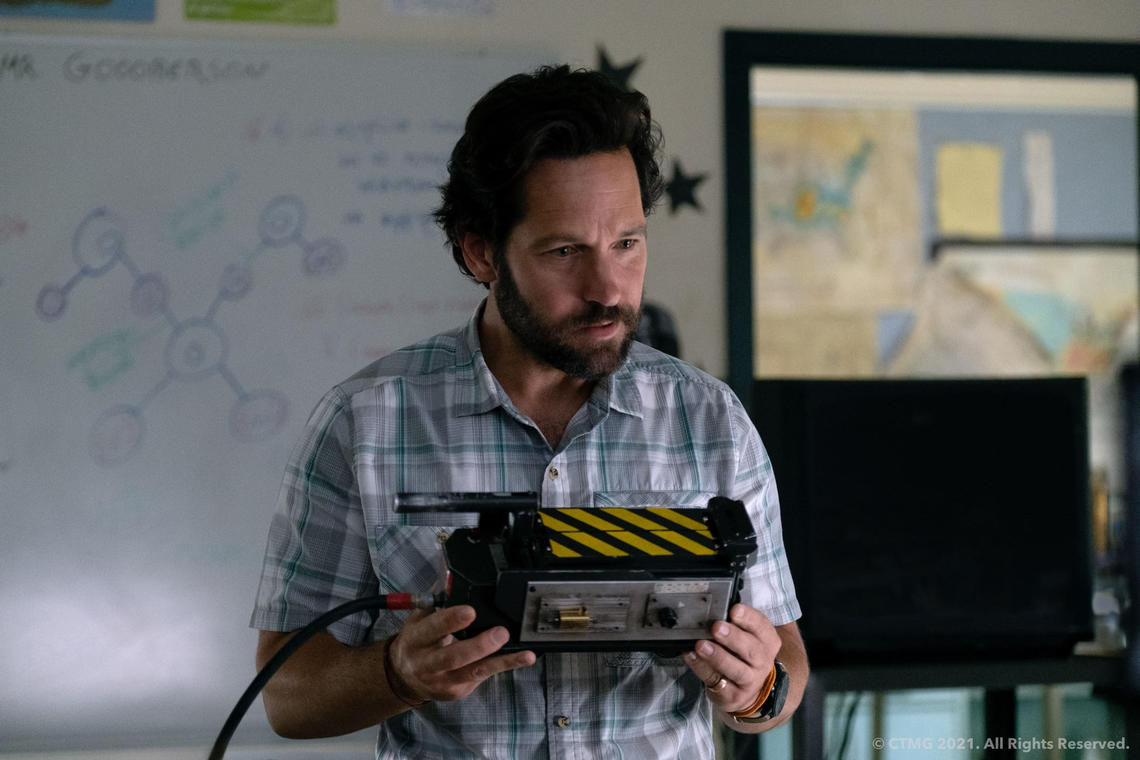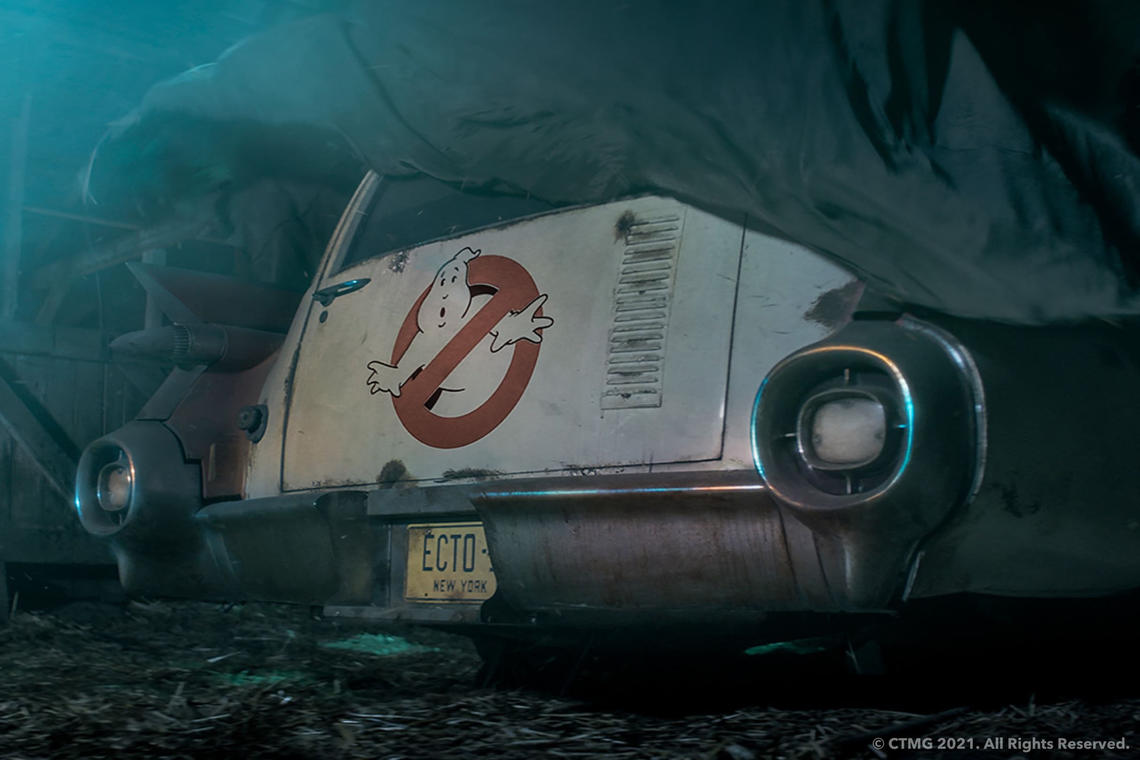Dec. 8, 2021
Hollywood taps University of Calgary seismologist’s expertise for Ghostbusters movie

Ghostbusters: Who you gonna call?! Seismology expert David Eaton, that’s who!
The makers of Ghostbusters: Afterlife reached out to Eaton, a national award-winning geoscientist at the University of Calgary, to serve as seismology expert consultant on the Hollywood blockbuster.
“There was quite a bit of cloak and dagger at the beginning,” says Dr. Eaton, PhD, geophysics professor in the Department of Geoscience within the Faculty of Science.
Erica Mills, a co-producer of the movie, emailed Eaton out of the blue saying that Jason Reitman, the movie’s director, was looking for someone with advanced seismology knowledge and would Eaton like to meet him. Reitman is the son of Ivan Reitman, who directed the first two Ghostbusters films.
However, with the screenplay for Ghostbusters: Afterlife still in progress, the moviemakers wanted to keep the details of their supernatural comedy — then known by the pseudonym title “Rust City” — under wraps (a white sheet perhaps?).
So Eaton and Reitman met one quiet Sunday morning in Eaton’s office on campus, with no one else around.
Reitman confided that he had some thoughts for incorporating earthquakes into the movie’s storyline, and he wanted to bounce his ideas off an expert.
“He had a genuine desire to try to make the backstory and character developments as credible as possible,” Eaton says.

Actor Paul Rudd as Gary Grooberson in Ghostbusters: Afterlife.
Sony Pictures Entertainment Inc.
Actor Paul Rudd plays a middle school science teacher, Gary Grooberson, in Ghostbusters: Afterlife. Grooberson has some background in seismology and becomes intrigued with trying to figure out what’s causing a series of mysterious earthquakes in the fictional small town of Summerville, Oklahoma.
The movie actually was shot at several locations in Alberta, including the Deerfoot City Walmart in Calgary, the Apple Pie Café and Ng’s Café in Beiseker, the Empress Theatre in Fort MacLeod, the W.G. Murdoch School in Crossfield, the Turner Valley Gas Plant, and at Horsethief Canyon near Drumheller.
To get a handle on Grooberson’s character, Eaton says he talked with Reitman about “thinking like a seismologist,” including sketching out some seismology concepts on his whiteboard in his campus office.
Eaton, who recently saw the movie, says: “It was kind of fun to see that they literally took the squiggles I made on the whiteboard and did exactly the same thing in the movie.”
Eaton also told Reitman that the real Oklahoma had actually seen a big surge in human-caused earthquakes, or induced seismicity, in the last decade. Oil and gas operations, especially underground disposal of wastewater, in the state have triggered minor earthquakes.
Eaton, who is internationally renowned for his cutting-edge research on earthquakes induced by hydraulic fracturing, chuckles and says: “In the movie, they actually ruled out hydraulic fracturing specifically as a cause of the earthquakes.”

David Eaton
Riley Brandt, University of Calgary
Shaking up the movie set
However, there is a scene featuring spook-tacular special effects where the three younger members of the Spengler family, who also are investigating the strange earthquakes, are forced to hide under a kitchen table due to a tremor.
“The action they took, which was to go under the table and hold onto the legs, was exactly the right thing to do if experiencing an earthquake,” Eaton says.
During earthquakes, the most likely way to get injured is by something falling down on top of you, he notes.
As for whether the tremors are depicted in a scientifically boo-lievable way, he says: “It was a fun movie. The set got shaken up. Trying to discover why there are earthquakes is a big part of the plot.”
Eaton received a small honorarium for his consulting work and he had to sign a non-disclosure agreement not to talk publicly about the movie or his work on it. For this UCalgary News story, he got permission from co-producer Mills to discuss his consulting role.
A big fan of the original Ghostbusters film, Eaton saw Ghostbusters: Afterlife with his family. He says it was “a bit surreal” seeing his name listed in the credits as “seismology consultant.”
“My family got a big kick out of it, my daughters especially.”
As for working as a scientific consultant on a ghost movie, Eaton says: “I enjoyed it. It was fun and interesting to meet the director and get that glimpse behind the curtain to see part of the creative process that goes into putting the movie together.
“I’d be open the opportunity if it ever happened again.”
You might say that in this case, when science met Hollywood, together they made a “boo-tiful” team.

Sony Pictures Entertainment Inc.






